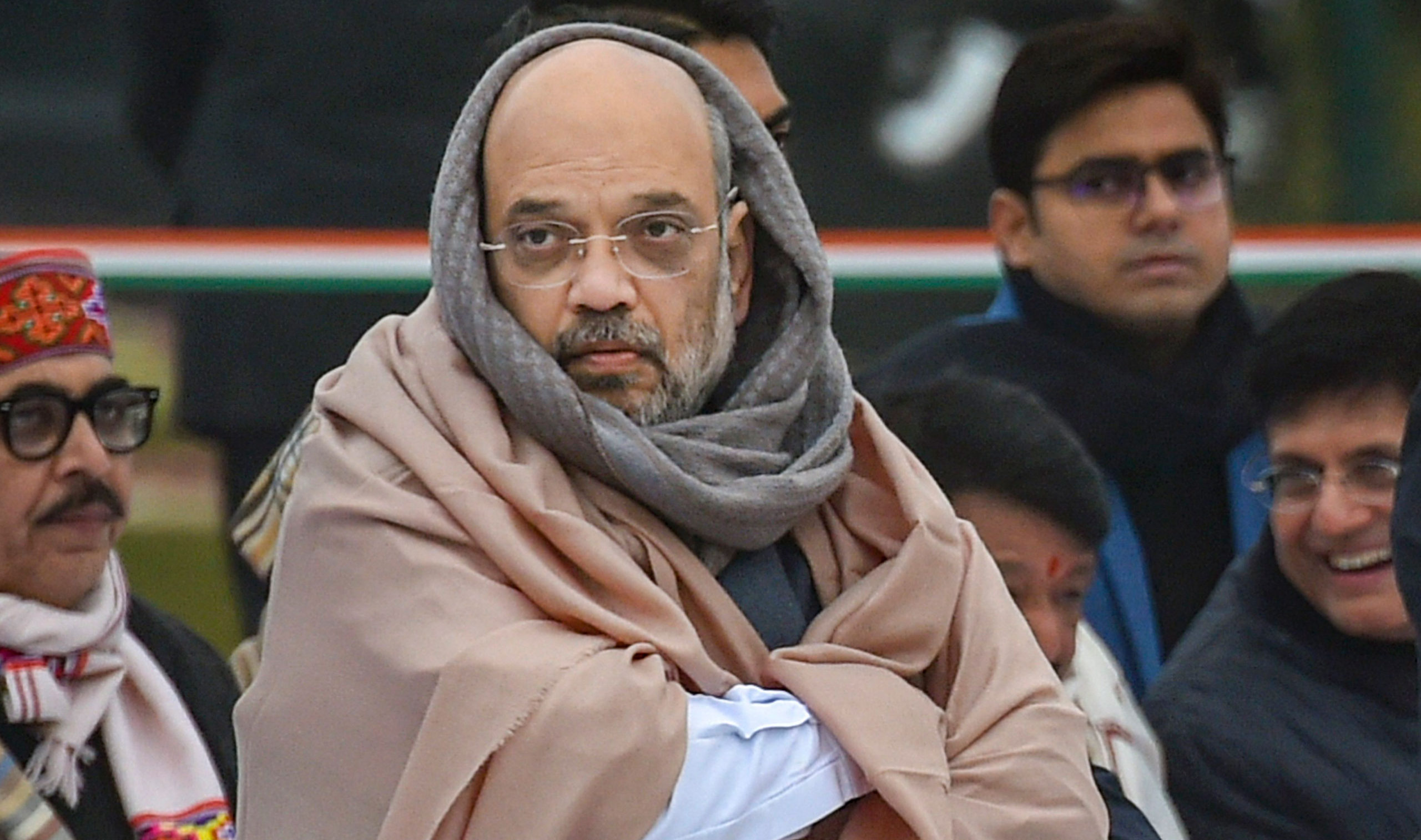Amit Shah’s NPR word vs rule
‘No document will be sought under the NPR; you are free to give whatever information you want’ Amit Shah was responding in the Rajya Sabha to a specific question on the NPR from Congress MP Kapil Sibal during a discussion on the Delhi riots, for which the home minister and the BJP have sought to blame the countrywide protests against the Citizenship (Amendment) Act.
Union home minister Amit Shah on Thursday said no one would be marked “doubtful” if they did not provide all the information sought for the preparation of the National Population Register (NPR), adding that no documents needed to be furnished during the process, either.
Shah was responding in the Rajya Sabha to a specific question on the NPR from Congress MP Kapil Sibal during a discussion on the Delhi riots, for which the home minister and the BJP have sought to blame the countrywide protests against the Citizenship Amendment Act.
“No document will be sought under the NPR. You are free to give whatever information you want. Nobody will be marked a doubtful citizen. No one should be scared of the NPR process,” Shah said amid a volley of questions from the Opposition.
The Citizenship (Registration of Citizens and Issue of National Identity Cards) Rules, 2003, empowers the local registrar to mark out people as “doubtful” at the verification stage.
Sub-rule 4 of Rule 4 of the Citizenship Rules for Preparation of the National Register of Indian Citizens states: “During the verification process, particulars of such individuals, whose citizenship is doubtful, shall be entered by the local registrar with appropriate remark in the population register for further enquiry and in case of doubtful citizenship, the individual or the family shall be informed in a specified proforma immediately after the verification process is over.”
Every person or family specified in sub-rule 4 of Rule 4 will be given an opportunity to be heard by the sub-district or taluk registrar of citizens’ registration, before the final decision is taken to include or to exclude their particulars in the National Register of Citizens (NRC).
As of date, sub-rule 4 of Rule 4 stands. Rules can be amended through an executive order.
But when Shah made the statement on Thursday, the Citizenship Rules had undergone no change and they continued to provide for the “doubtful” categorisation.
Sibal had said that no one was saying the CAA would take away citizenship but the apprehension stemmed from the Act being coupled with the NPR, which this time has “10 additional questions” plus the existing provision of categorising people as “doubtful”.
The countrywide NPR, scheduled to begin on April 1, is being conducted “in pursuance of sub-rule (4) of Rule 3 of the Citizenship (Registration of Citizens and Issue of National Identity Cards) Rules, 2003”, as per the gazette notification issued by the home ministry on July 31, 2019.
Sub-rule (4) of Rule 3 states: “The central government may, by an order issued in this regard, decide a date by which the Population Register shall be prepared by collecting information relating to all persons who are usually residing within the jurisdiction of local registrar.”
The following sub-rule (5) states: “The local register of Indian citizens shall contain details of persons after due verification made from the Population Register.”
Although the Narendra Modi government has for now backed down on a nationwide NRC in the face of protests across the country — after Shah had said in the Lok Sabha on December 9 that “it is coming” — the fact remains that the government has more than once said in Parliament that the NPR is the “mother database for creating the National Register for Indian Citizens”.
The home ministry’s annual report of 2018-19 said: “The National Population Register is the first step towards the creation of the National Register for Indian Citizens.”
The Citizenship Amendment Act of 2003 provides the legal framework for the NRC.






